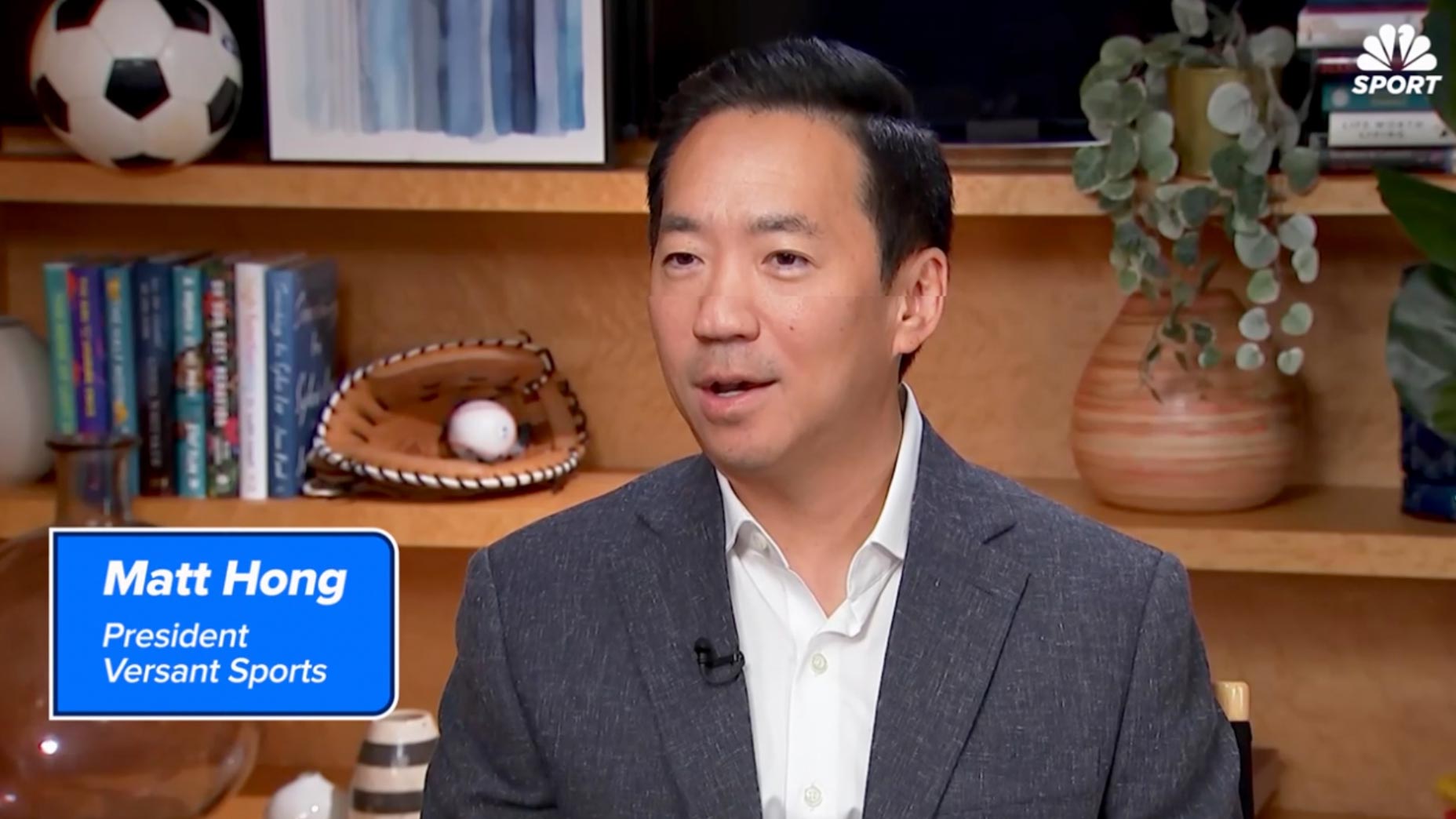How did Golf Channel start one of the most radical changes in its 30-year history?
By changing absolutely nothing.
On Tuesday, Golf Channel and its new parent company, Versant, announced it had signed the first rights deal in the nascent cable behemoth’s history, a 6-year agreement with the USGA to keep each of its 15 championships on the same network they’ve called home in some form for the last three decades. The news marked the first major announcement of any kind for Versant, the collection of NBC and Comcast’s cable channels that will be formally “spun off” from the Comcast umbrella later this year.

5 things to know from the USGA’s new 6-year TV deal with NBC
By:
James Colgan
The USGA deal is a fitting microcosm of the moment for Versant, keeping a long-time partner with the Golf Channel while simultaneously formalizing the company’s intention to stay the course in cable TV. The announcement cools some outside concern that Versant might look to sell off or dramatically overhaul its collection of cable TV assets in response to the structural upheaval of the cable business in the streaming age. It suggests instead that Versant aims to revitalize its cable assets, doubling down on the declining (but still profitable) enterprise while leveraging the brand strength of its collection of cable channels to look for new investment.
Golf Channel, which will shift to Versant ownership in the new year, is one of the key players in that strategy. In many ways, Versant hopes the “new” Golf Channel will look similar to the old one, continuing to bring live golf tournaments and studio coverage of significance to viewers across the country while supporting supplemental businesses like GolfPass and GolfNow. In order to execute that strategy, Golf Channel needs programming like the USGA, said Matt Hong, Versant’s new president, in an interview with CNBC‘s Alex Sherman.
“We will continue to be active for top-shelf, top-tier sports programming, like the one with the USGA, or like the set of rights with the USGA that we announced today,” Hong said. “That’s our current core business, and we’ll continue to invest in our core business. But we’ll also invest in growth of our digital properties. So, organic growth of digital properties like the ones we have in golf with GolfNow and GolfPass. And then, I think we also have to be assertive about investing inorganically and doing M&A with businesses that are synergistic to our linear properties.”
Corporatespeak aside, Hong’s answer suggests that Versant is armed to make future media investments. One plausible area for those investments is in sports, where Golf Channel, CNBC and USA Network have accumulated some assets, and where there is still real financial upside for linear TV businesses. In recent months, some have suggested that Versant could look to merge with another sports entity to accumulate several more batches of TV rights, chasing one last dragon of sports TV profits from the linear age.
But Hong said for the moment, a merger was out of the picture.
“I don’t know that we will merge with an entity that has sports rights only because we have plenty of programming to help drive our linear business,” Hong said. “I think the future will be acquisitions—inorganic acquisitions, which help diversify our revenue streams. So, it will really be continuing to invest in our core linear business, and then looking for inorganic opportunities that complement that linear business.”
It is generally believed that any long-term succession plan for a cable TV business will be inclusive of streaming, which is where the vast majority of growth in the media has occurred in the last decade. Despite signing the USGA to a TV-only agreement, Hong did not dispute that fact.
“We still believe very much in the strength of the linear networks that we have for the sports division but also for all of Versant inclusive of CNBC. We’re also not blind to the reality of how sports fans consume media,” Hong said. “So even though this [USGA] deal is exclusively linear, we will also have streams that you’ll be able to see on Golfchannel.com early next year, and more to talk about vis-à-vis streaming in the next few years.”
On the topic of streaming, Hong suggested that Versant could look to license some of their best linear TV content to streaming companies. Some partnerships could be inclusive of Versant’s (current) corporate partners at Peacock, but some could come outside of the NBCU umbrella.
“All other things being equal, we’d like to continue to work with and partner with NBCU and Peacock going forward,” Hong said. “I think one of the unique things about being separate public companies here soon is we’ll be able to potentially partner with Peacock, but we’ll also be able to partner with other third-party streamers in situations where a set of rights may or may not work for Peacock but we want them at Versant. We’ll have the freedom to partner with some streamers that previously we didn’t necessarily have the freedom to partner with.”
For Hong, the most valuable word for Versant today is runway. For all the pearl-clutching around the downfall of cable TV, most of Versant’s assets remain financially robust (if declining with the trend of cord-cutting). While Comcast didn’t have the organizational patience to navigate the decline and reposition for the future, Versant remains specialized in cable TV for just that reason.
“I think we have a strong business. We have $7 billion in annual revenue and healthy free cash flow. I also think that the reason why people tune into linear television are assets like those that exist at CNBC,” Hong said. “We’ve got strong news assets, and we’ve got strong sports assets that I’m particularly partial to. And I think that provides us with a runway to look at how we can evolve this business through inorganic growth and I think that will be a focus for our company. For us in the sports division, that will be a focus and I think for that – for our entire company, that will be a focus.”
In other words, the winds of change are blowing at Golf Channel HQ — but in the short-term, it probably won’t look that way.

James Colgan
James Colgan is a news and features editor at GOLF, writing stories for the website and magazine. He manages the Hot Mic, GOLF’s media vertical, and utilizes his on-camera experience across the brand’s platforms. Prior to joining GOLF, James graduated from Syracuse University, during which time he was a caddie scholarship recipient (and astute looper) on Long Island, where he is from. He can be reached at james.colgan@golf.com.







